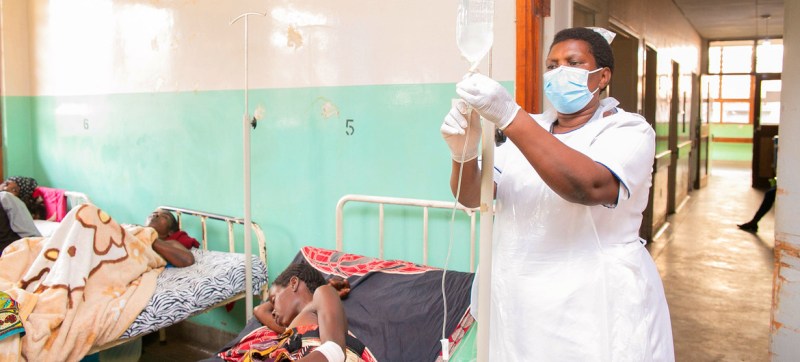 Tedros
Tedros COVID-19: Consequences of ‘chronic under-investment in public health’ laid bare: Tedros
New York: A global chronic under-investment in public health has been exposed by the coronavirus pandemic, which must now lead to a major re-think in how all societies value health, said the head of the World Health Organization (WHO) on Friday.
Tedros Adhanom Ghebreyesus was making closing remarks at the closing of WHO’s governing body, the World Health Assembly, which finalized its annual session this week after its regular May meeting was cut short by COVID-19 safety requirements.
Historic vaccine advances
The WHO chief highlighted the Pfizer/BioNTech vaccine breakthrough announced this week, which results indicate could be around 90 per cent effective, saying he had “no doubt” that vaccines were a vital tool for controlling the on-going pandemic.
“Never in history has vaccine research progressed so quickly. We must apply the same urgency and innovation to ensuring that all countries benefit from this scientific achievement.
“But we have a long way to go. The world cannot put all its eggs in one basket and neglect the many other tools at our disposal, that countries like Thailand have shown are effective, for bringing this virus under control.”
What works against the virus before inoculation, are isolation, testing and treatment programmes, where the contacts of those infected are traced and then quarantine.
Chronic weakness
The COVID-19 pandemic has “demonstrated the consequences of chronic under-investment in public health”, said Tedros, and the health crisis, “has ignited a socio-economic crisis that has impacted billions of lives and livelihoods and undermined global stability and solidarity. Returning to the status quo is not an option.”
The WHO chief said it wasn’t just more investment that was needed in public health infrastructure, “we must also rethink how we value health.”
New brains trust on health economics
Tedros told the Assembly that that time has now come to think of healthcare as an investment, not a cost, “that is the foundation of productive, resilient and stable economies.”
“To start building that narrative, today I am proud to announce that we are establishing a new Council on the Economics of Health for All, to focus on the links between health and sustainable, inclusive and innovation-led economic growth.”
He said the first virtual session of the Council, which will bring together leading economists and health experts, will likely hold its first virtual session in the coming weeks, to set out its work plan and best way of working.
“The pandemic has also shown that there is an urgent need for a globally agreed system for sharing pathogen materials and clinical samples”, he added, “to facilitate the rapid development of medical countermeasures as global public goods.”
Productive session
Among the Assembly’s achievements through the week were a new roadmap to defeat meningitis by 2030; a new roadmap for neglected tropical diseases; a resolution on scaled-up action on epilepsy and other neurological disorders; the adoption of the Immunization Agenda 2030; the Global Strategy to Accelerate the Elimination of Cervical Cancer as a public health problem; and the Global Strategy for TB Research and Innovation.
“Each of these represents an urgent health priority that affects the lives of millions of people, and which increases the demands on, and expectations of, WHO”, said Tedros.
Support Our Journalism
We cannot do without you.. your contribution supports unbiased journalism
IBNS is not driven by any ism- not wokeism, not racism, not skewed secularism, not hyper right-wing or left liberal ideals, nor by any hardline religious beliefs or hyper nationalism. We want to serve you good old objective news, as they are. We do not judge or preach. We let people decide for themselves. We only try to present factual and well-sourced news.







